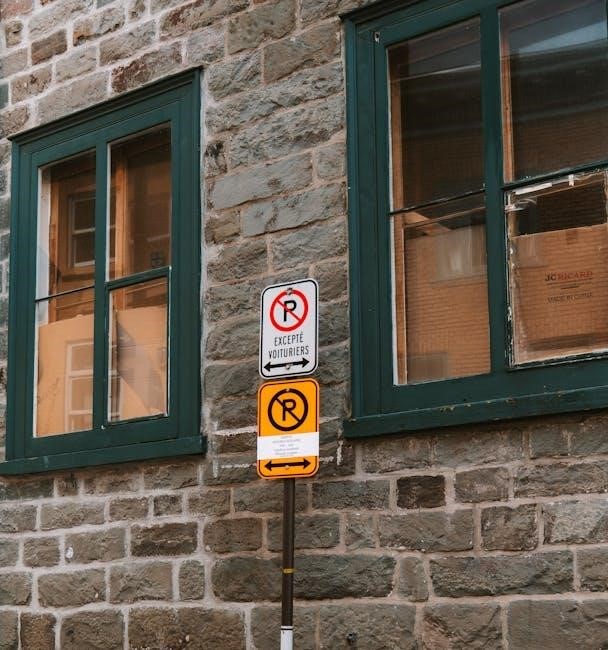An invitation letter for a Canada visa is a formal document written by a Canadian resident‚ essential for visa applications․ It provides details about the invitee and host‚ helping assess eligibility․ While it supports the application‚ it does not guarantee visa approval․
Importance of the Letter
The invitation letter is crucial as it provides credibility to the visa application‚ confirming the applicant’s intent to visit Canada temporarily․ It must include details about the invitee‚ such as name‚ birthdate‚ and purpose of the visit‚ as well as the host’s information‚ including their legal status in Canada․ This document helps visa officers assess the applicant’s eligibility and ensures compliance with immigration requirements‚ though it does not guarantee approval․
What the Letter Does Not Guarantee
The invitation letter does not guarantee visa approval‚ as the final decision rests with the visa officer․ It also does not impose legal or financial responsibility on the host for the visitor’s actions or expenses in Canada․ The letter merely supports the application by providing context and confirming the applicant’s intent to visit temporarily‚ in compliance with Canadian immigration laws and regulations․
Who Can Write the Invitation Letter?
Canadian citizens‚ permanent residents‚ or eligible individuals residing in Canada can write an invitation letter․ The host must provide complete personal and contact information․
Canadian Citizens
Canadian citizens aged 18 and above can write an invitation letter․ They must provide proof of citizenship‚ such as a passport or birth certificate․ The letter should include their full name‚ address‚ contact details‚ and relationship to the invitee․ Citizens must declare their support for the visitor’s stay‚ including details like accommodation and intended duration․ This letter helps verify the invitee’s plans but does not guarantee visa approval․
Permanent Residents
Permanent residents of Canada‚ aged 18 or older‚ are also eligible to write invitation letters․ They must provide proof of their status‚ such as a Permanent Resident Card (PR Card)․ The letter should include their full name‚ address‚ contact details‚ and relationship to the invitee․ Permanent residents must declare their support for the visitor’s stay‚ including accommodation and duration․ This letter aids in verifying the invitee’s plans but does not ensure visa approval․
Other Eligible Individuals
Other individuals‚ such as Canadian work or study permit holders‚ may also write invitation letters․ They must provide proof of their legal status in Canada‚ such as a valid work or study permit․ The letter should include their full name‚ address‚ and contact details․ These individuals must declare their support for the visitor’s stay‚ including accommodation and duration․ This letter aids in verifying the invitee’s plans but does not ensure visa approval․
Key Elements of the Invitation Letter
The letter must include the invitee’s details‚ inviter’s information‚ purpose of visit‚ and financial support․ It should be clear‚ concise‚ and formally written to meet visa requirements․
Invitee’s Details
The invitation letter must include the invitee’s full name‚ date of birth‚ current address‚ and contact information․ It should also specify their relationship to the host‚ purpose of the visit‚ and duration of stay in Canada․ This information helps visa officers assess the application and ensures compliance with immigration requirements․
Inviter’s Information
The invitation letter must include the inviter’s full name‚ address‚ and contact information in Canada․ It should also state their status in Canada (e․g․‚ citizen‚ permanent resident) and occupation․ Additionally‚ the inviter should provide details about how they will support the invitee during their stay‚ such as accommodation and financial assistance․ This information helps establish the credibility of the invitation and the host’s ability to support the visitor․
Purpose of the Visit
The invitation letter must clearly outline the purpose of the visit‚ such as tourism‚ visiting family‚ or attending events․ It should specify the duration of the stay‚ including arrival and departure dates․ The letter should also mention where the invitee will stay and any planned activities․ This helps immigration officers assess the legitimacy and intent behind the visit‚ ensuring compliance with visa requirements․
Financial Support
The invitation letter must provide proof of financial support‚ ensuring the invitee can cover expenses in Canada․ This can include bank statements‚ employment letters‚ or affidavits from the host․ The invitee may also demonstrate their own financial capacity․ This section is critical to show that the visitor can support themselves during their stay‚ aligning with visa requirements and reducing concerns about overstay or unauthorized work․
Sample Invitation Letter Structure
A sample invitation letter includes the host’s contact information‚ a clear subject line‚ details about the invitee’s visit‚ and a signed declaration․ It follows a formal format․
Header Information
The header includes the inviter’s full name‚ address‚ phone number‚ and email․ It also contains the date and the embassy’s address where the application will be submitted․ This section ensures clarity and professionalism‚ providing essential contact details for verification purposes․ It is the first part of the letter and sets the tone for the formal request․ Accuracy is crucial to avoid delays in processing․
Subject Line
The subject line should clearly state the purpose of the letter‚ such as “Invitation Letter for [Name] ⎼ Temporary Resident Visa Application․” It should be concise and specific to ensure the visa officer immediately understands the letter’s intent․ A clear subject line helps in quickly identifying the application’s purpose and streamlines the review process․ Avoid vague language and ensure it is professional and direct․
Body of the Letter
The body should clearly outline the invitation’s purpose‚ detailing the invitee’s name‚ relationship to the host‚ and the visit’s duration․ It must specify the dates of stay‚ accommodation arrangements‚ and whether financial support is provided․ The tone should remain formal and polite‚ ensuring all information is accurate and concise․ Avoid informal language and ensure clarity to facilitate the visa officer’s review process effectively․
Declaration and Signature
The declaration and signature section confirms the authenticity of the invitation․ The host must affirm that all information provided is true and accurate․ They should state they are financially supporting the visitor‚ if applicable‚ and assume no legal responsibility post-arrival․ The host’s full name‚ signature‚ date‚ and contact information must be included to validate the document‚ ensuring compliance with visa requirements and officer verification processes․

Tips for Writing an Effective Invitation Letter
Be clear‚ concise‚ and accurate․ Personalize the letter with genuine details․ Proofread to avoid errors and ensure proper formatting․ Maintain an official tone throughout the document․
Clarity and Conciseness
A clear and concise invitation letter is crucial for a successful visa application․ Avoid unnecessary details and ensure all information is straightforward․ Use simple language to convey the intent‚ duration‚ and purpose of the visit․ Organize the content logically‚ making it easy for visa officers to assess․ This approach increases the likelihood of a positive outcome and avoids delays in processing․
Personalization
Personalizing the invitation letter ensures it reflects the invitee’s specific circumstances and your relationship․ Tailor the content to the individual‚ including personal details and the purpose of their visit․ Address the visa officer directly and sign the letter to add authenticity․ Personalization demonstrates genuine intent and strengthens the credibility of the application‚ making it more compelling for visa officers to review favorably․
Proofreading
Proofreading the invitation letter is crucial to ensure accuracy and professionalism․ Check for grammatical errors‚ spelling mistakes‚ and proper formatting․ Verify all personal details‚ dates‚ and contact information for consistency․ A well-proofread letter avoids confusion and demonstrates attention to detail‚ increasing the likelihood of a positive response․ Consider having someone else review it to catch overlooked errors before submission․

Common Mistakes to Avoid
Common mistakes include incomplete information‚ incorrect formatting‚ and lack of an official tone‚ which can delay or result in rejection of the visa application․
Incomplete Information
Incomplete information is a common mistake‚ where critical details like the invitee’s name‚ birth date‚ address‚ or purpose of visit are missing․ Ensure all required sections are filled‚ including the inviter’s status in Canada‚ contact details‚ and the invitee’s travel plans․ Omitting financial support details or accommodation plans can also lead to delays or rejection․ Always double-check the letter for thoroughness before submission․
Incorrect Formatting
Incorrect formatting is a frequent issue‚ where the letter does not follow the required structure or style․ This includes using informal language‚ inconsistent date formats‚ or omitting sections like the subject line or declaration․ The letter must be formally written‚ with clear headings and proper organization․ Using incorrect templates or failing to proofread can lead to formatting errors‚ which may delay the application process․ Always use official templates and ensure consistency throughout the document․
Lack of Official Tone
A common mistake is using an informal tone in the invitation letter․ Phrases like “I hope you can come” or casual language may undermine the letter’s professionalism․ The tone should be formal and polite‚ avoiding slang or overly casual expressions․ Ensure the letter reflects the seriousness of the application process․ Using a formal structure and language demonstrates respect for the visa process and increases the letter’s credibility․
Legal Considerations
The invitation letter must comply with Canadian immigration laws‚ ensuring all information is accurate․ Providing false details can lead to visa rejection or legal consequences for both parties․
No Financial Responsibility
The invitation letter does not impose financial liability on the host․ It is important to note that the host is not legally obligated to cover the visitor’s expenses․ However‚ offering proof of financial support‚ such as bank statements‚ can strengthen the visa application․ The host’s declaration of support is voluntary and demonstrates goodwill‚ but it does not create a legal bind․ This clarification is crucial to avoid misunderstandings․
Compliance with Immigration Laws
The invitation letter must comply with Canadian immigration laws․ It is essential to ensure all information provided is truthful and accurate․ Misrepresentation or false statements can lead to visa refusal or legal consequences․ The letter must align with the provisions of Canada’s Immigration and Refugee Protection Act‚ ensuring the visit is temporary and for legitimate purposes․ Compliance is crucial for a successful application․

Required Documents
Required documents include the inviter’s ID proof‚ financial statements‚ and bank statements․ These documents validate the host’s ability to support the visitor during their stay in Canada․
Inviter’s ID Proof
The inviter must provide valid identification documents‚ such as a Canadian passport‚ birth certificate‚ citizenship certificate‚ or permanent resident card․ These documents confirm the inviter’s legal status in Canada and must be issued by Canadian authorities․ They serve as proof of the host’s eligibility to extend an invitation․ Ensure the documents are up-to-date and legible for submission․
Financial Statements
Financial statements are required to demonstrate the inviter’s ability to support the visitor financially․ Documents such as bank statements‚ pay stubs‚ or a letter of employment must be included․ These documents should show sufficient funds to cover the visitor’s living expenses‚ including accommodation and meals; This ensures the host can financially support the guest during their stay in Canada‚ aligning with visa requirements․

Submission Process
The invitation letter must be submitted to the Canadian Embassy or consulate as part of the Temporary Resident Visa application along with other required documents․
Where to Submit
The invitation letter must be submitted to the Canadian Embassy‚ consulate‚ or visa office responsible for the applicant’s home country․ It should be included in the visa application package․ Ensure the correct embassy address is used‚ as listed on official government websites․ For online applications‚ upload the letter through the IRCC portal․ Always verify the submission guidelines to avoid delays in processing․
How to Submit
Include the invitation letter in the visa application package․ Submit it online via the IRCC portal or mail it to the designated embassy․ Ensure the letter accompanies all required documents․ While notarization isn’t mandatory‚ the letter must be signed and dated․ This process helps streamline the application review‚ ensuring all necessary information is readily available to visa officers․ Compliance with submission guidelines is essential for efficient processing․
Final Thoughts
A well-crafted invitation letter is crucial for supporting a visa application‚ demonstrating genuine intent to visit Canada․ While it doesn’t guarantee approval‚ it highlights the host’s responsibility and the invitee’s plans․ Ensure clarity‚ accuracy‚ and compliance with immigration requirements․ Double-check all details to avoid delays․ Remember‚ honesty and thoroughness are key to a successful application process․
Additional Resources
For further guidance‚ visit the official Immigration‚ Refugees and Citizenship Canada (IRCC) website․ Utilize sample invitation letter templates available online to ensure proper formatting and content․ Consult with immigration professionals or legal experts for personalized advice․ Additionally‚ check community forums and trusted legal resources for tips and real-life examples to enhance your understanding of the process․
